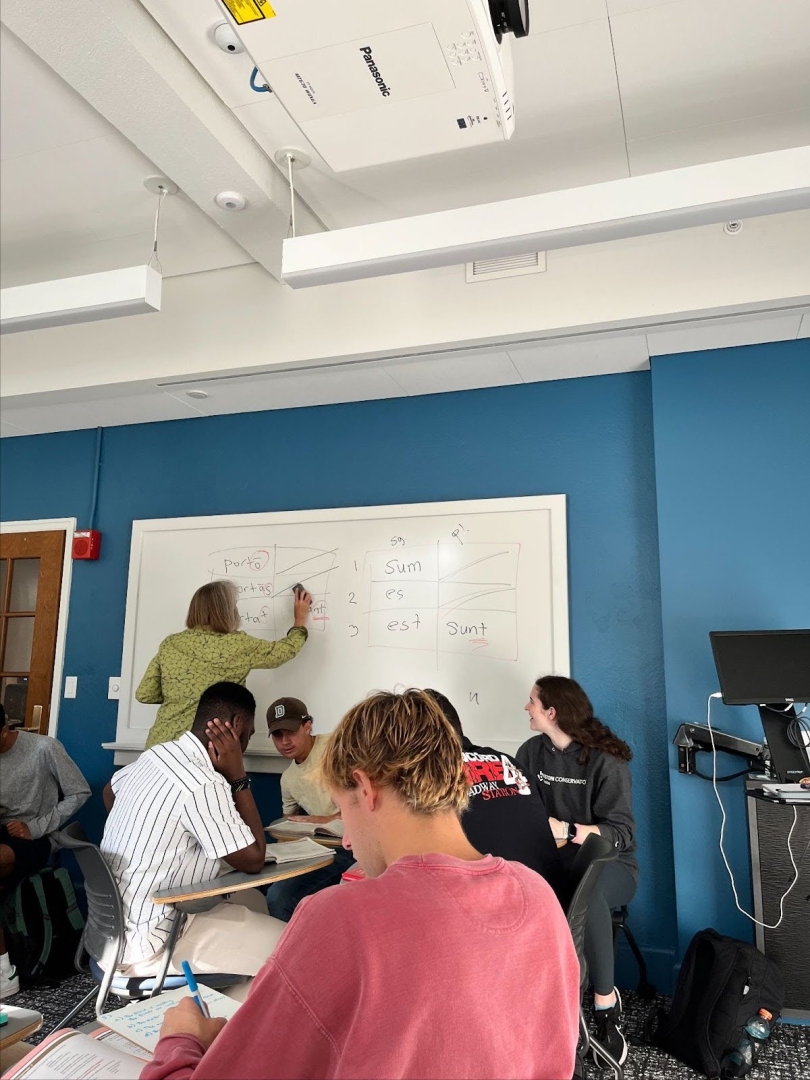
My Take on the D-Plan
For those who don't know, there's a helpful button on the side of this page that says "What's a D-Plan?" and can answer all your questions (or you can click here). As someone who's been navigating academic life at Dartmouth for a little over a year now, I've had a lot of time to form my opinion regarding the D-Plan. Here's a quick breakdown of the pros and cons, at least from my perspective.
The Pros
1. Flexibility
I think the hands-down biggest advantage of the D-Plan is the flexibility it provides. You can choose (within reason) when to be on campus, meaning you can tailor your college experience to fit your interests, needs, and goals.
2. Small classes
The most tangible effect of the D-Plan during my first year at Dartmouth was the small class sizes. Since not everyone is on campus at the same time, class sizes can be reduced—making it easier to connect with classmates and instructors and leading to a deeper understanding of the material.

3. Opportunities
Since the D-Plan allows you to take unconventional terms off (like winter!), you may be able to find internship opportunities more easily. This can be a game changer for gaining work experience or exploring career paths.
4. Variety
With the D-Plan, no two students have the same Dartmouth experience. This creates the opportunity to form a truly unique college journey that I think highlights the individuality and creativity of Dartmouth students.
The Cons
1. Inconsistency
Since everyone is on different schedules, it can be difficult to maintain a consistent large friend group at Dartmouth. You might have close friends who are off-campus when you're on, or vice versa—which can be tough. It is nice to have a chance to expand your circle of friends, though!

2. Mapping out D-Plans
The D-Plan requires a somewhat significant amount of foresight. You have to plan your courses, internships, and off-terms in advance, which can be overwhelming. Thankfully, there are a lot of resources available to help you during this process. (Like the People, Places, Pines blog)!
3. Limited course availability
Not every course is offered every term at Dartmouth, so you have to consider which classes you want (and need) to take when forming your D-Plan. This can be frustrating if you have a specific academic plan in mind or want to take a unique class for a distributive that does not line up with your D-Plan. Thankfully most majors and minors have a lot of flexibility in terms of what courses you can use to fulfill the requirements.

The D-Plan is both liberating and challenging. It offers an unprecedented level of flexibility, but it also requires a lot of organization and proactive planning. Everyone's Dartmouth experience is unique, and the D-Plan is a major factor of what makes that sentiment true.
My D-Plan still isn't set in stone, and that's okay! There's no shame in asking for help when trying to make big decisions like which term to take off. I encourage you to check out some of my fellow bloggers' profiles to take a peek at their D-Plans!


















